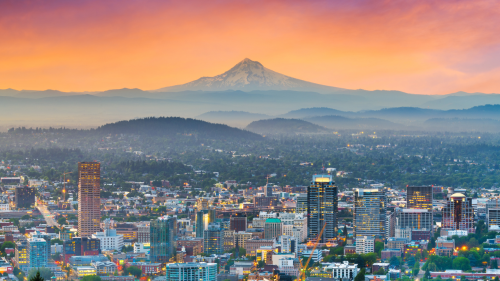2nd August 2024
In a nutshell
In 2020 Oregon stopped criminalising people caught with drugs for their own use, instead offering them a choice between a civil fine or having a health screening. As with Portugal’s successful drug decriminalisation, this led to fewer life-scarring criminal records, and many more people in treatment, partly paid for by not arresting and imprisoning them.
However, a big rise in homelessness led to more street drug use, with Oregon also affected by the nationwide rise in fentanyl deaths. Sadly, instead of politicians addressing these issues, for their own political gain they scapegoated decriminalisation, and reversed it in 2024. A decision Oregon will live to regret.
In more detail
Why did Oregon decriminalise?
Decriminalisation:
Reduces stigma and fear of arrest, encouraging people who use drugs to engage with support services
Reduces the harms from being arrested and prosecuted
Saves money and time which can be reinvested into treatment, drug education, and health and social care services
Decriminalisation was working
While Oregon removed criminal penalties for drug possession, people could still be fined unless they had a health screening via a phone hotline.
Drug possession arrests dropped by 84%
$40 million saved in legal costs were redirected to drug services
Service provision improved, while engagement with treatment, harm reduction, health screening and employment services all at least doubled
A political scapegoat
Some Oregon politicians falsely blamed decriminalisation when wider policy failings led to a rise in street drug use and deaths. In reality:
The whole US saw a deadly rise in fentanyl use, with over half of U.S states experiencing higher levels of deaths than Oregon.
More people had to use drugs in the streets, after Covid added to a homelessness crisis caused by rising housing costs, shortages and evictions.
Despite improvements, delays in funding meant there weren’t enough drug services to meet demand.
History shows re-criminalisation is a mistake
Oregon is not the first country to re-criminalise drug possession. The Czech Republic did so in 2000, yet evaluation showed that this did not reduce the availability of drugs, but did significantly increase social costs - so the Czech Government decriminalised again in 2010.
Oregon must prioritise public health, not self-interested political grandstanding. It must reestablish decriminalisation but based on best practice models, embedded within properly funded wider social care services.
However, while decriminalisation is a critical enabler of many health and treatment measures, it cannot address all the problems caused by the illegal drug markets, such as adulterated or super-potent products, and street sales. A much more complex approach based on legal control and regulation of drugs is the only solution to these issues.




